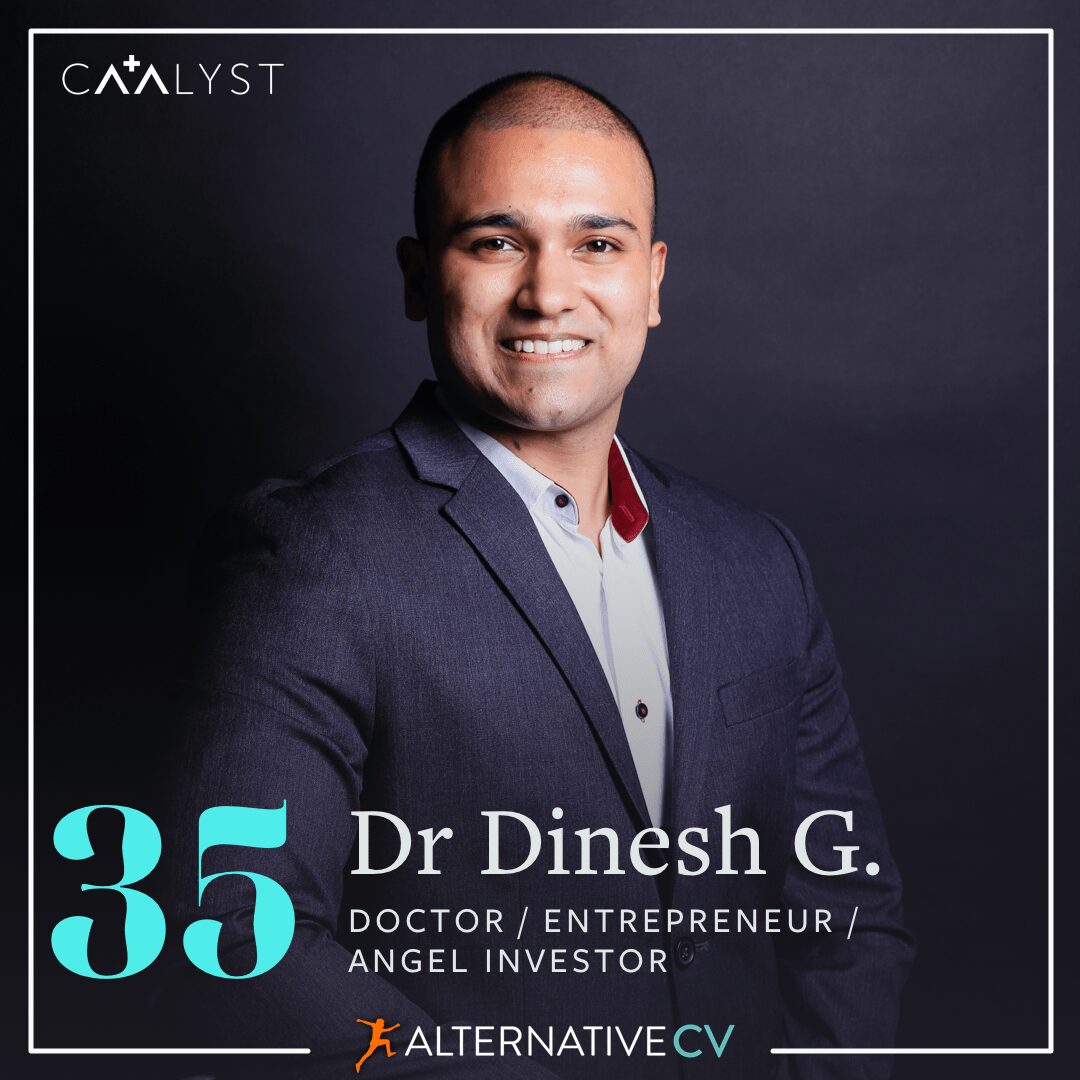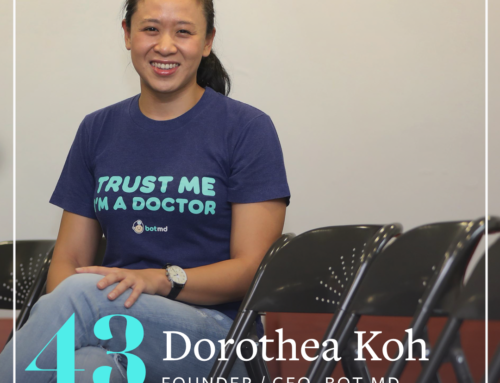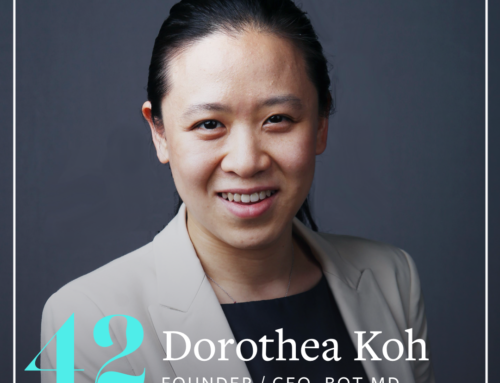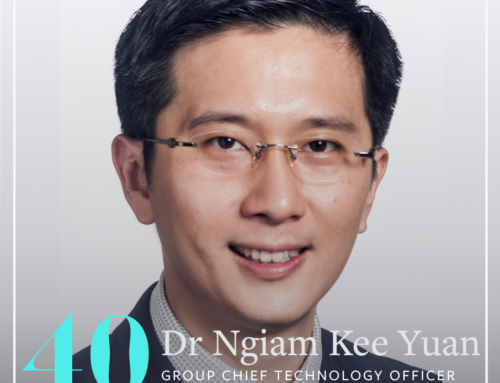5 November 2020
ACV35: [Masterclass] On Angel Investing (Dr Dinesh Gunesekaran, Doctor / Entrepreneur / Angel Investor, Part 2)

Dr. Dinesh Gunesekaran is a practicing medical doctor and scientist. He completed medical training at the National University of Singapore, during which he received the Wong Hock Boon Society for Research Distinction award – he has since published over 30 manuscripts in peer-reviewed journals including Lancet Diabetes & Endocrinology, JAMA Ophthalmology, and IOVS, and is an active reviewer in journals including JAMA Ophthalmology. He is best known for his work as Head (Health Informatics) 2011-2019 in the Collaborative Ocular Tuberculosis Study group, a project that spanned 10 years and used big data to address ocular tuberculosis, where Dinesh oversaw the collaboration of 25 hospitals across 10 countries.
Dinesh has also co-founded Doctorbell, overseeing product strategy and medical affairs. His startup was acquired in 2018 by MaNaDr, MOH telemedicine sandbox. He currently provides independent consulting in health technology and invests in digital health start-ups such as AskDr.
In this episode, Dinesh gives a masterclass on raising angel investment for your startup. He also shares his perspective as an investor on how he evaluates founders and companies who have approached him for investment.
3 THINGS I LEARNED
- At the seed stage, it is possible to raise money from grants and competition prizes – it’s worth checking these out. If you would like to meet angel investors, one possible way is to take your idea to hackathons or accelerator programmes. Not only do these connect you to the right people, they’re also structured in such a way as to help you think through your idea.
- Pick your angel investors carefully. The individual has to regularly meet, comment, and contribute to the strategy overall running of the company. If this person doesn’t have the right expertise, background, and knowledge, they could be a huge drag.
- When raising money: Raise more than you need, and don’t forget that you need time to raise your next funding round. But also raise at a fair valuation – you can have subsequent rounds of funding that gives up less equity when your product is more proven and has taken some risks off the table.
REFERENCES MADE
- Zero to One by Peter Thiel https://www.amazon.com/Zero-One-Notes-Startups-Future/dp/0804139296
- PWC reports https://www.pwc.com/gx/en/research-insights.html – also worth searching and googling reports by other consultants / venture capital firms
- Deloitte reports https://www2.deloitte.com/ng/en/pages/about-deloitte/articles/global-reports-download.html
If you have enjoyed this episode of The Alternative CV Podcast please subscribe, share this episode and leave a comment or review so that I know what you like and what I can do better on. Get in touch at hello@alternativecv.fm. Thanks so much for helping me make this show better!







![ACV39: [Masterclass] Exercise, Diets and Supplements For a Healthy Life (Dr Deborah Wong, Doctor / Entrepreneur / Fitness Guru, Part 2)](https://b2161552.smushcdn.com/2161552/wp-content/uploads/2020/11/Insta-39-500x383.jpg?lossy=0&strip=1&webp=1)

Leave A Comment